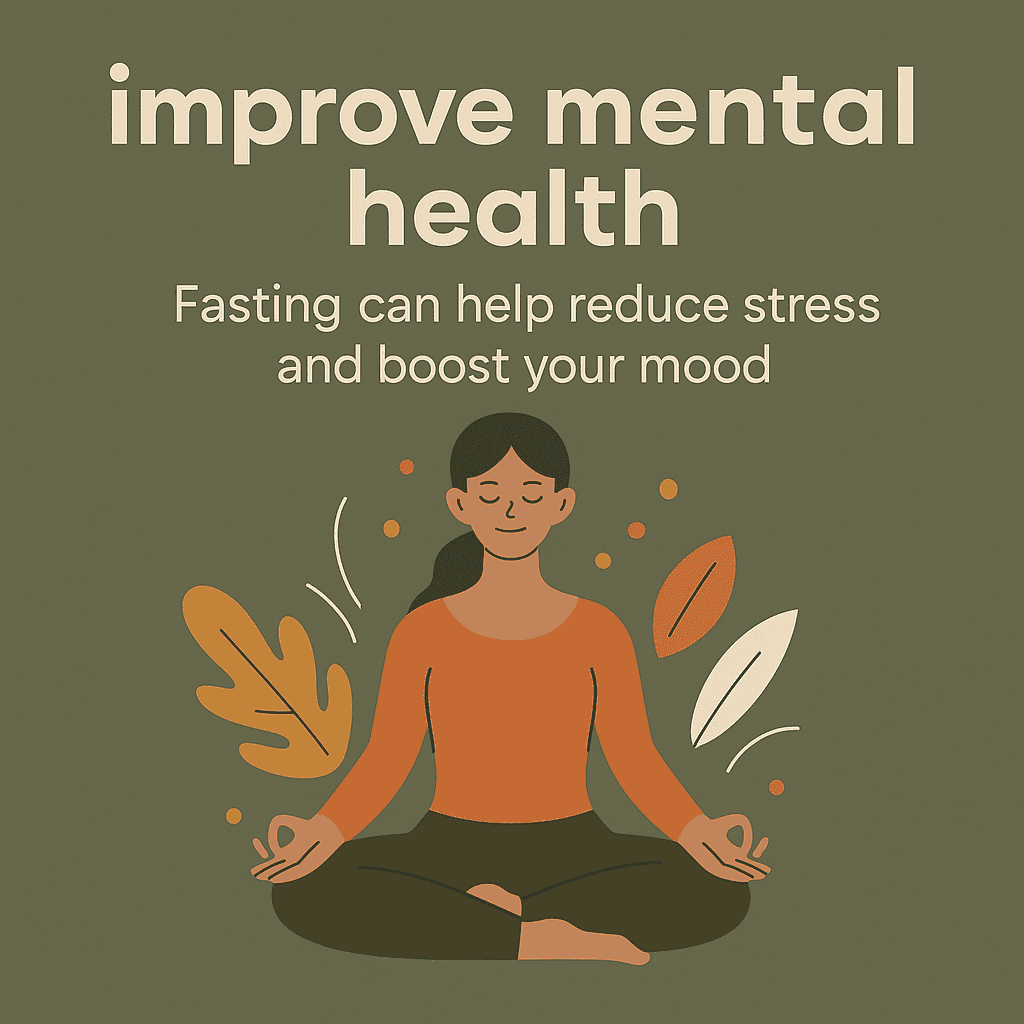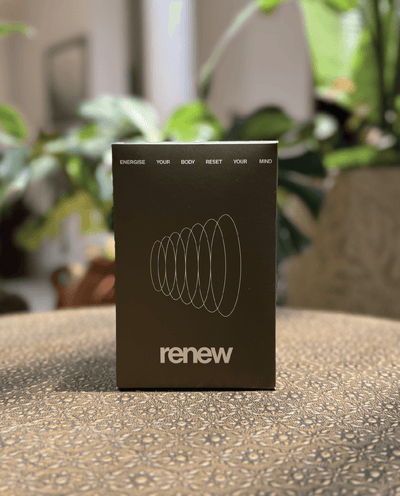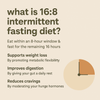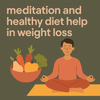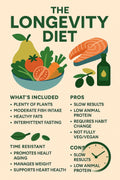Can Fasting Help Improve Mental Health?
Most people associate fasting with weight loss or gut health - but emerging science and centuries of tradition point to something deeper: fasting for mental health.
Fasting isn’t just a physical reset. It’s a mental one, too.
The Mind-Body Link
Periods of intentional fasting give your brain a break. When you’re not constantly digesting food, your body shifts into repair mode. That includes neurological benefits—like improved clarity, sharper focus, and even emotional regulation.
In fact, many people practicing 1 day fasting or 5 day fasting protocols report feeling calmer, more aware, and less reactive.
Fasting for Anxiety and Stress Relief
So what about fasting for anxiety?
Studies suggest that fasting may help regulate neurotransmitters like serotonin and dopamine—both of which play key roles in mood balance. It can also reduce inflammation, which is increasingly linked to mental health conditions.
Here’s how fasting helps:
-
Stabilizes blood sugar, preventing mood crashes
-
Boosts brain-derived neurotrophic factor (BDNF), linked to memory and learning
-
Increases mindfulness, by breaking habitual eating patterns
-
Supports hormonal balance, which directly impacts how we feel day to day
Combined with other natural approaches to how to reduce stress—like movement, meditation, and quality sleep—fasting can become a powerful addition to your mental health toolkit.
Explore Our Best-Selling Product
A Modern Approach to an Ancient Practice
At Outlive, we’ve taken the age-old practice of fasting and made it safe, structured, and deeply nourishing.
-
Try Outlive’s 1-Day Program: Ideal for a midweek reset when your mind feels foggy or overwhelmed.
-
Explore the 5-Day Program: A deeper journey into cellular renewal that many users say improves not just their body—but their outlook on life.
If you're looking for a mental refresh without stimulants or screens, fasting might be the pause your brain's been craving.
Frequently Asked Questions (FAQs) :
1. Does fasting really reduce anxiety or depression?
Fasting may help you feel better, less nervous, and more capable. This is particularly likely if fasting aligns with what matters to you. Remember that everyone reacts differently to fasting.
2. Why are some individuals mentally clearer when fasting?
It's all about how the body powers the brain. When glucose levels are low, your body makes ketones, a cleaner, more efficient fuel source. Research and anecdotal evidence correlate this shift with clearer thinking, enhanced memory, and greater concentration. Most intermittent fasters claim to feel mentally keener once the body has adjusted
3. Is there anything negative for mental health?
Yes, there are downsides to fasting. Some people feel more irritable, anxious, or depressed, particularly in the first few days. Mood is affected by fluctuations in blood sugar, and the practice might not be for everyone, particularly those with vulnerable mental health or hormonal imbalance.
4. Are mood boosters based on scientific evidence or the power of suggestion?
Fasting may increase neurotransmitters such as serotonin and dopamine, which could stimulate autophagy and decrease inflammation. But results differ depending on biology and attitude..
5. How can I fast safely, without harming my mind?
Begin slowly (e.g., 12–14 hours)
- Get hydrated and emotionally hydrated—mindfulness assists
- Don't fast during times of high stress or emotionally challenging times
- Monitor your feelings day by day; cease if things go downhill
- You know yourself best—fast, mindfully.
6. Does Outlive provide assistance with mental health during fasting?
Outlive programs are created with overall well-being in mind, balancing diet, fasting, and emotional health. If you prefer guided, scientifically supported means, they've got you covered.

